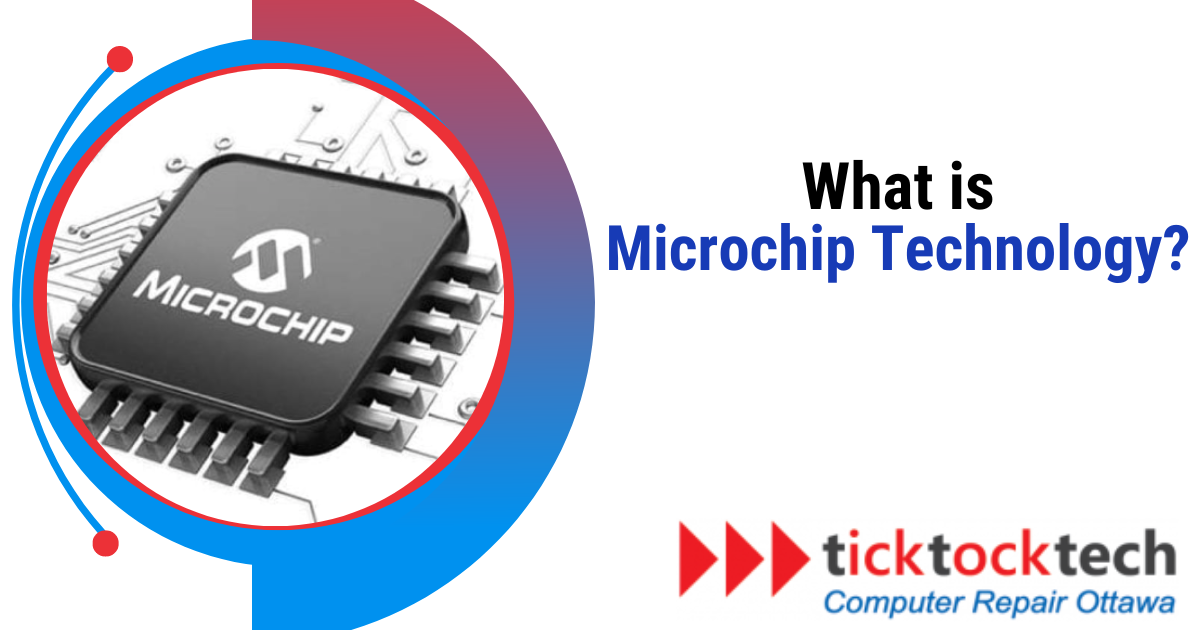The world went from large memory storage devices of 5MB to having a small flash drive of up to 256GB. This is the same way of bringing out chips, the wonder being performed by the little creations. Even though microchips might look small, they are technology marvels, with many developed nations struggling to produce their own. Despite this, many companies are producing this technology, and one of those companies is the Microchip technology company.
What is a Microchip?
A microchip often called a chip or an integrated circuit (IC), is made up of microscopic electrical circuits on a small silicon piece. This includes transistors operating as switches, directing the flow of current. Layers of material are added and deleted to form a complex network of interconnected components.
Manufacturers construct these chips with semiconductor materials such as silicon or germanium. They carve the components into layers with complicated linkages. They measure these in nanometers, with some already less than 10 nm, allowing billions of components on a single chip.
IBM announced a 2 nm device in 2021, which is smaller than human DNA. A nanometer is one billionth of a meter, which allows for up to 50 billion transistors on a chip the size of a fingernail.
Related: Functions of a CPU and GPU in a Computer?
How are Microchips Manufactured
Microchips are primarily built of silicon because of their abundance, low cost, and ease of usage. However, as technology improves, the limits of silicon are being reached. Researchers are investigating alternate solutions.
The manufacturing process contains multiple processes and might take up to four months from design to mass production. Cleanrooms have tightly controlled air quality and temperature, and wafers are transported between equipment by robots.
Chips can have up to 100 layers, requiring precise alignment using lithography methods like EUV and DUV equipment. These systems maintain ultra-clean conditions to avoid infection. Employees wear specialized gear to reduce particle introduction. ASML builds its machines, crucial for chip fabrication, in pristine settings in the Netherlands.
See Also: 12 Very Common Troubleshooting Computer Problems and DIY Solutions.
What Company is Microchip Technology
Microchip Technology Inc. is a company that specializes in creating microcontrollers, mixed-signal, analog, and Flash-IP solutions. They provide a wide variety of semiconductor devices and systems for various industries. Industries such as automotive, industrial, consumer, aerospace, and defense. The company, established in 1989, has its headquarters in Chandler, Arizona, USA. At Microchip, they have a wide range of development tools, software, and design resources available to help their customers create cutting-edge and efficient designs.
Their product lineup consists of microcontrollers and digital signal controllers that come in 8-bit, 16-bit, and 32-bit variants. These components are crucial for powering the latest electronic devices. Microchip also offers a range of devices for digital and analog design needs, including mixed-signal, linear, interface, and power management devices.
Microchip dedicates itself to providing customers with dependable, affordable, and high-quality products. The company runs advanced wafer fabrication facilities. They also use a strict quality management system to make sure their products meet the highest standards of quality and reliability.
Microchip focuses on security, connectivity, and performance in its product lines, which help with quick prototyping and effective product development. Microchip has a worldwide presence and a wide network of distributors, which allows them to offer great customer support and technical assistance to their customers all over the world.
Related: The Ultimate Guide to Upgrading Your Old PC on a Budget
Microchip Products from Microchip Technology Company
Microchip Technology Inc. provides a comprehensive range of solutions to meet a variety of electronic design demands. Here are the major categories:
- Microcontrollers and microprocessors: These are scalable 8-bit, 16-bit, and 32-bit microcontrollers, digital signal controllers, and microprocessors. They make it easier to meet ever-changing electronic standards.
- Analog components: This portfolio contains mixed-signal, linear, interface, and power components that can be easily integrated regardless of a designer’s level of experience.
- Amplifiers and linear integrated circuits: These products reduce design complexity and risk, making them appropriate for both basic and complicated scenarios.
- Clock and Timing Solutions: The portfolio comprises MEMS oscillators and active hydrogen masers, which provide precise timing for a variety of applications.
- Data Converters: With high-speed and low-power performance, these converters meet modern application needs efficiently.
- Embedded Controllers and Super I/O: These controllers cater to the special requirements and long lifecycles of embedded computing systems.
- FPGAs and PLDs: These low- and medium-density Field-Programmable Gate Arrays (FPGAs) are distinguished by their low power consumption and security features.
- High-Speed Networking and Video: Solutions for OTN, Ethernet, CoaXpress®, and ARCNET protocols that support high-speed communication and video.
Microchip also provides solutions for memory, discrete, power management, power over Ethernet, RF and microwave, security products, sensors, motor drives, smart energy/metering, storage, touch and gesture, wireless connection, and bespoke services.
See also: What is an IT Assessment? The Do’s and Don’ts of IT Assessment
Takeaway
Microchip technology is a miracle of modern technology, featuring small electrical circuits on a little silicon piece. Constructors build these chips with layers of material, packing billions of components onto a single chip, and some can have up to 100 layers. Microchip Technology Inc. specializes in developing microcontrollers, mixed-signal, analog, and Flash-IP solutions. They provide a diverse range of semiconductor devices and systems utilized in a variety of sectors.

